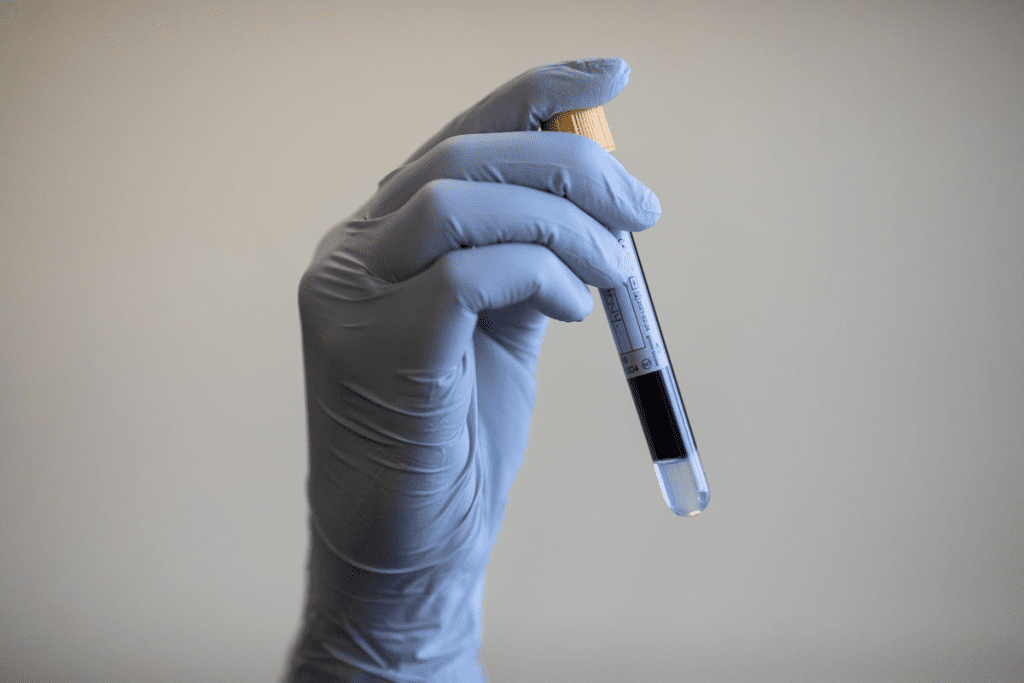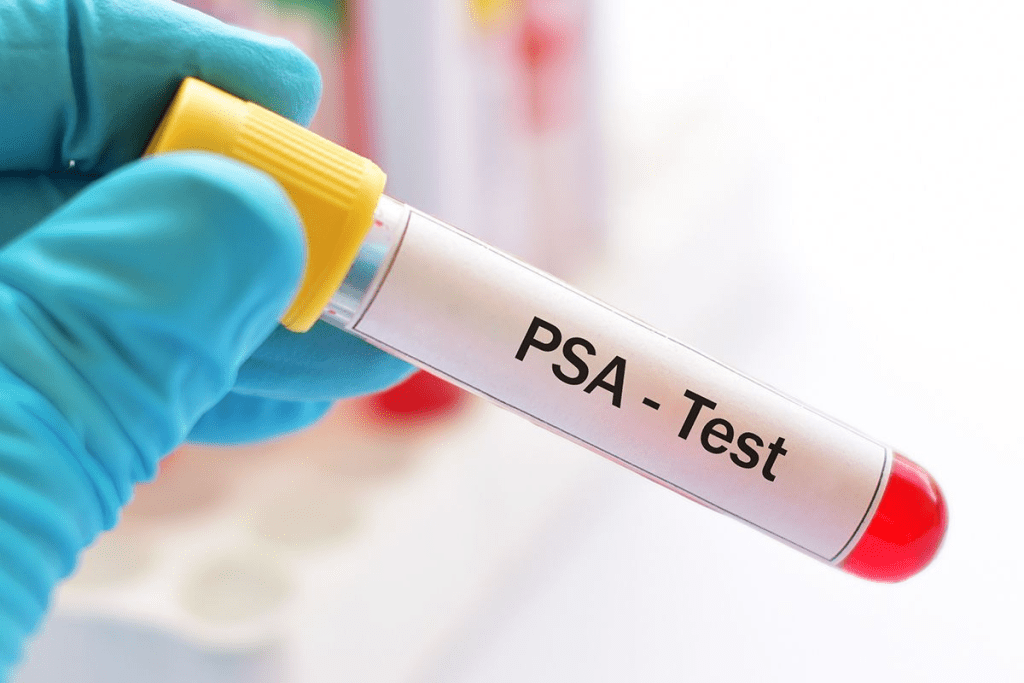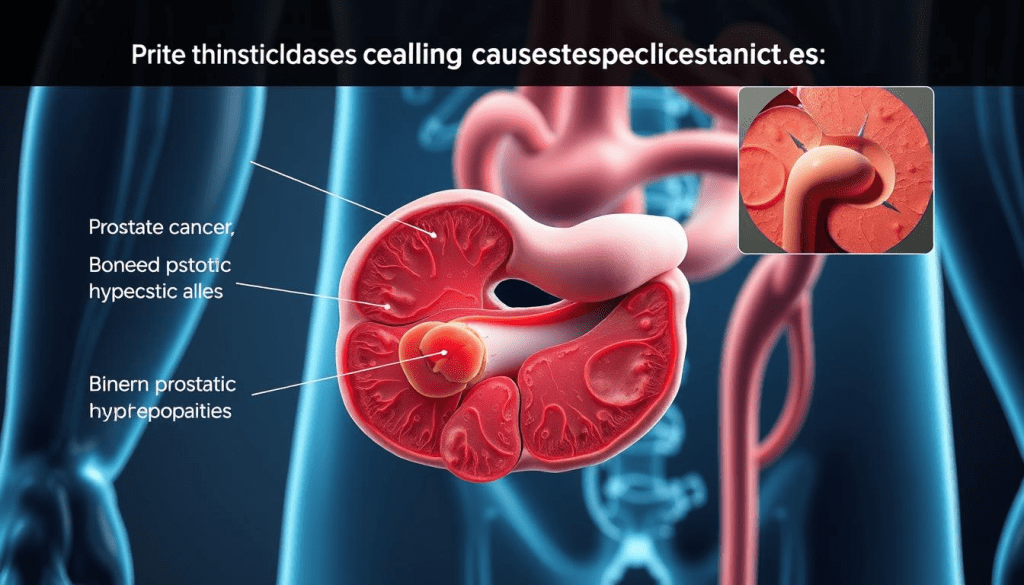Last Updated on November 25, 2025 by
Getting a high prostate-specific antigen (PSA) test result can be scary. But it’s important to know that a high PSA level doesn’t always mean you have prostate cancer.

At Liv Hospital, we say many things can raise your PSA levels. These include health issues and lifestyle choices. PSA is a protein made by the prostate gland. A level of 10 nanograms of PSA per milliliter (ng/mL) of blood is seen as high.
We aim to give top-notch healthcare with full support for international patients. Knowing what can raise your PSA levels helps you make smart health choices.
Knowing your PSA test results is key to understanding your prostate health. Prostate-specific antigen, or PSA, is a protein from the prostate gland. The PSA test checks your blood for PSA levels, giving clues about your prostate.
PSA is a protein from the prostate gland cells. A healthy prostate releases a small PSA amount of PSA into the blood. But prostate cancer or other issues can cause more PSA, raising blood levels. It’s important to know what PSA means to understand your test results.

The PSA test is a blood test that checks PSA levels. It’s a simple way to check prostate health. Results are in nanograms per milliliter (ng/mL). These help see if your PSA is normal or if it’s high, which might mean a problem.
PSA testing isn’t a direct test for prostate cancer. But it’s a useful tool that helps find people at risk. It’s a valuable screening tool that can spot problems early, helping with treatment.
What’s normal for PSA levels changes with age. Generally, PSA levels go up as you get older. Here are the usual PSA ranges for different ages:
Knowing these ranges helps you understand your PSA level and what to do if it’s not normal.
PSA levels can be influenced by many medical conditions, including common ones in men. It’s important to know these conditions to understand PSA test results.
Prostatitis, an inflammation of the prostate gland, can raise PSA levels. This inflammation might come from infection or other reasons. Prostatitis can be acute or chronic, and diagnosing it involves tests and a doctor’s evaluation. Accurate diagnosis is key to treating it and easing symptoms.

Benign Prostatic Hyperplasia (BPH), or enlarged prostate, can also increase PSA levels. It’s common in older men and makes the prostate bigger, causing urinary issues. While BPH is not cancerous, it can greatly affect a man’s life.
Urinary tract infections (UTIs) can also raise PSA levels. UTIs happen when bacteria infect the urinary system and can lead to serious problems if not treated. Prostate trauma, from injury or medical procedures, can also affect PSA readings. It’s vital to get a medical check-up to find out why PSA levels are high.
In summary, many medical conditions can impact PSA levels. Knowing these factors is key to a correct diagnosis and treatment. At Liv Hospital, we offer full care for conditions linked to high PSA levels.
Many lifestyle choices can change PSA readings. Knowing these can help you take care of your prostate.
Recent sex can raise PSA levels. It’s wise to wait a few days before a PSA test to get accurate results.
“Ejaculation can raise PSA levels temporarily,” says a top urologist. “So, wait at least 48 hours before a test.”
Some exercises, like cycling, can also change PSA levels. Activities that press on the prostate can cause PSA changes.
Talk to your doctor about your activities. They can help you understand how they affect your PSA.
Being overweight, not drinking enough water, and diet can also affect PSA levels. Staying healthy, drinking water, and eating well are good for your prostate.
“A healthy lifestyle helps your overall health and keeps PSA levels stable,” says a healthcare expert.
Knowing how lifestyle choices affect PSA can help you and your doctor. If you’re worried about your PSA, talk to your doctor about these factors.
Many medical procedures and health factors can change your prostate PSA test results. It’s important to know these factors to understand your blood test prostate PSA results well.
Urologic procedures like digital rectal exams (DRE) and prostate biopsies can raise PSA levels. Talk to your doctor about when these procedures happen to know how they affect your PSA test results.
Other urologic procedures, like cystoscopy or prostate surgery, can also change PSA readings. It’s key to think about these when checking your prostate health.
Some medicines can change PSA levels. For example, finasteride and dutasteride, used for BPH, can lower PSA readings. Tell your doctor about any medicines you take to get the right PSA test results.
Medicines for male pattern baldness can also affect PSA levels. Knowing how these medicines work is important for a full check of prostate health.
As men get older, PSA levels can go up because the prostate grows. We look at these age changes when we check PSA test results.
Also, having conditions like diabetes and high blood pressure can change PSA levels. Our team looks at all these factors to check your prostate health fully.
Knowing what can change PSA levels helps us give a better check of your prostate health. If your PSA results are high, talk to your doctor about these factors to figure out what to do next.
Getting news of a high PSA level can be scary. But it’s important to know it doesn’t always mean prostate cancer. At Liv Hospital, we say a high PSA needs careful checking. We look at many things, like health conditions and lifestyle.
If your PSA is high, talk to our experts. They can figure out why and make a plan just for you. Our team is here to give you top-notch care and support. We make sure you get care that fits your needs.
It’s key to know what can raise your PSA. Things like prostatitis, enlarged prostate, and lifestyle choices matter. Together, we can take the right steps. This includes more tests to handle your high PSA.
The PSA test checks the prostate-specific antigen (PSA) in your blood. PSA is a protein made by the prostate gland.
Normal PSA levels change with age. What’s normal for one person might not be for another.
Yes, lifestyle can change PSA levels. Things like recent sex, cycling, being overweight, how much you drink, and what you eat can affect it.
High PSA levels can be caused by prostatitis, BPH, urinary infections, and prostate injuries.
Medical procedures, like exams and surgeries, can change PSA levels. Some medicines, like those for BPH or hair loss, can also affect it.
No, a high PSA doesn’t always mean cancer. Many things, like health conditions and lifestyle, can raise PSA levels.
If your PSA is high, talk to a healthcare expert. They’ll figure out why and help you with a plan.
Age and health issues can change PSA levels. A full check-up looks at these to understand your prostate health.
Subscribe to our e-newsletter to stay informed about the latest innovations in the world of health and exclusive offers!